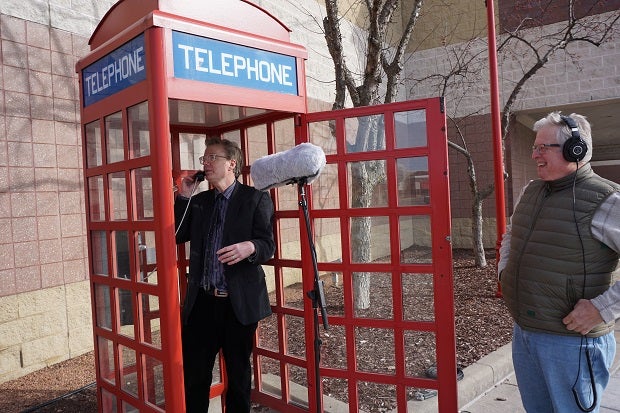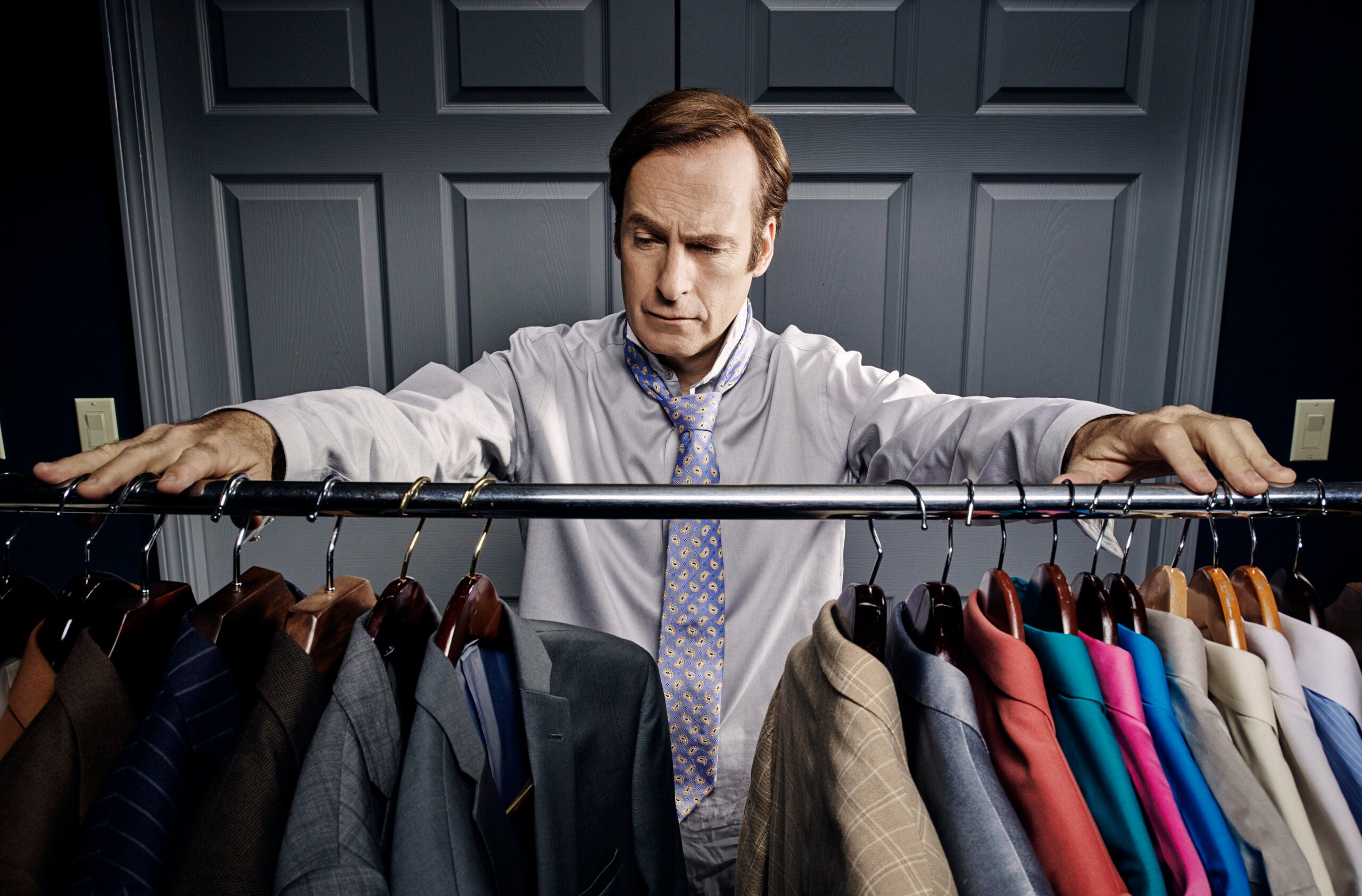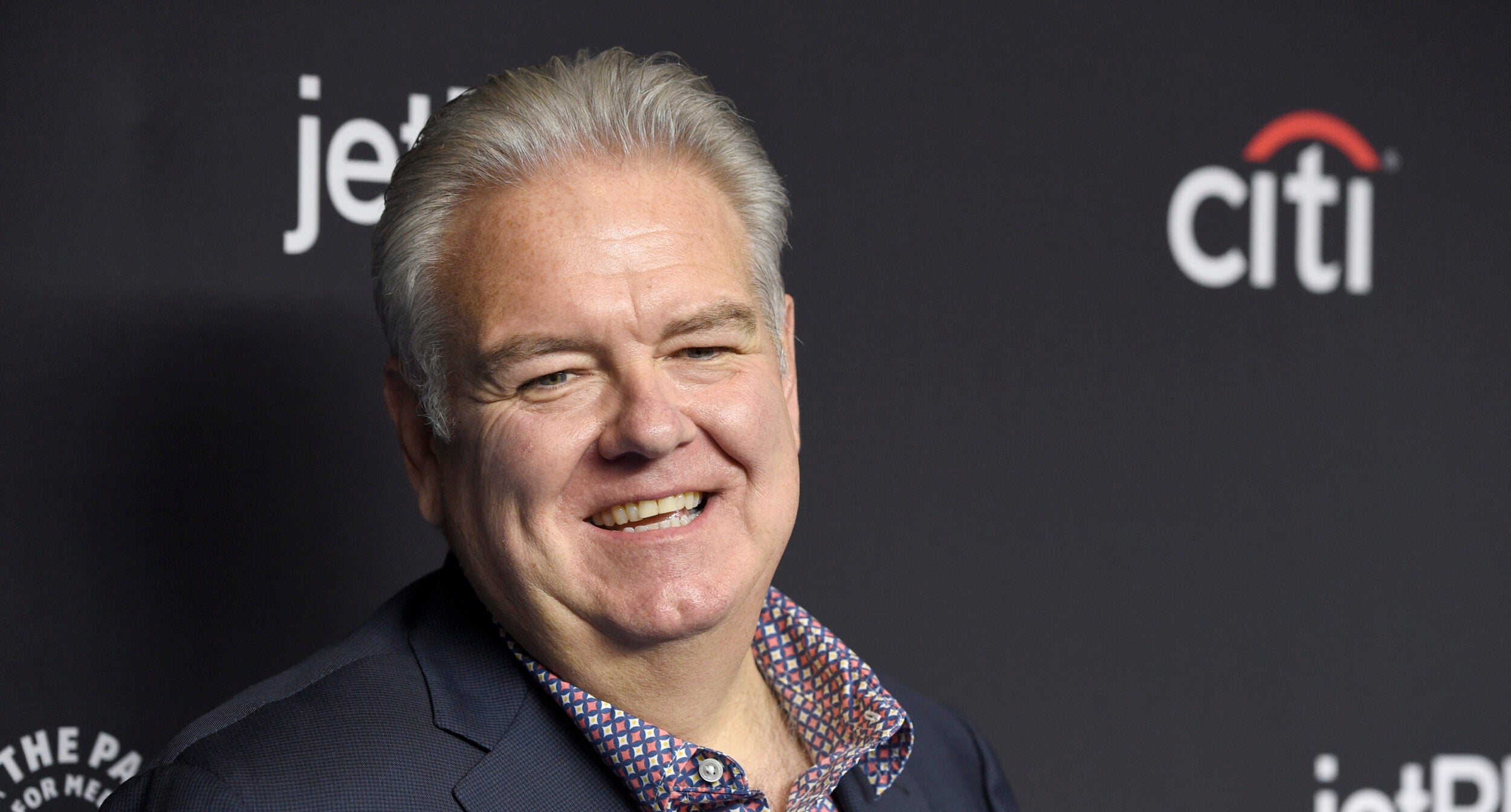From Stefon to hitman, comedian Bill Hader channels his personal struggles into the HBO comedy/drama “Barry.” Can you remember the last time you used a phone booth? Can you remember the last time you saw a phone booth? Author Ariana Kelly explores the phenomenon of phone booths in pop culture. And, author Jonathan Abrams taps into the oral history of “The Wire.”
Featured in this Show
-
Bill Hader Channels 'SNL' Struggles Into New Show
Comedian and actor Bill Hader is probably best known for his work on “Saturday Night Live.” However, it wasn’t all laughs for him backstage. Hader struggled with severe anxiety that never really alleviated during his tenure with the sketch comedy giant.
“I was not very good at live performing and it was something that scared me. I mean I had a really bad, uh, kind of anxiety while I was there,” he told WPR’s “BETA.”
While it may not appear obvious to viewers that Hader was struggling, he admits that “before every show I would have a bit of a flip out.”
“I watch it and it seems to me like … ‘can’t you see how nervous I am? Look at me,’” he said.
It got so severe that it began to impact his health.
“I would describe it as debilitating where, you know, I couldn’t breathe or move … like you’re having a heart attack or something,” said Hader.
The source of the stress wasn’t his “SNL” cast mates or the work, but rather the format of the show.
“To be clear … it wasn’t the show’s fault or whatever. It was definitely my own, kind of issue that I was trying to work through,” Hader said. “It just comes down to you have one take and it’s on national television and I just didn’t like that.”
Hader is now the co-creator of HBO’s new comedy “Barry.” The show tells the story of a hit man struggling with depression who catches the acting bug while on assignment in Los Angeles.
When Hader and his co-creator, Alec Berg, were developing the concept for the show, they tapped into Hader’s experiences at “SNL.”
“Let’s not make a show about a guy who’s on a live television show who has panic attacks, that’s not really interesting, but a guy who kills people for a living and he’s really good at it, but it’s destroying his soul, I thought was interesting,” he said. “The idea that thing you’re good at is destroying you and the thing you want to be good at, you know, you’re not good at.”
The show explores the dichotomy of those two professions and mines a lot of laughs from toggling back and forth between comedy and drama.
“You know a hit man is living in the shadows and you have to be anonymous and you have to be kind of emotionally closed off and acting is the exact opposite of that,” Hader said. “You want to live in the spotlight and you know, you want to be known and you want to be emotionally open.”
Juggling those two very distinct tones can be tricky. Hader explains the show’s approach.
“To us, we’re just kind of telling a story and you know we would talk about tone, obviously, and go ‘what’s the tone of this thing?’ But, you know you just kind of try it and do it and see what’ll hold water and what won’t,” he said. “Some things we tried were too dark and some things we tried were too silly and you cut those things to try to make the tone work.”
In addition to creating and acting in the show, Hader is also taking a stab at writing and directing. That level of involvement is something he’s been interested in since the beginning of his career.
“It was kind of a big itch I wanted to scratch … I had acted a bunch — 13 years of doing “Saturday Night Live” and acting in mostly comedies and things — and it was nice to finally, you know, do something a little different but get a chance to direct,” Hader said.

Bill Hader (left) and co-star Henry Winkler (right). Photo by John P. Johnson courtesy of HBOWhile the rest of the “Barry” cast like Henry Winkler and Stephen Root have offered praise for the production, Hader confesses that while he’s enjoying the process, his enjoyment is tempered a bit.
“It’s like you’re throwing a party, so you’re having a good time and you’re hoping other people are having a good time, but you’re constantly keeping an eye on, ‘Is the food there, is no one wrecking that thing’ you know what I mean?” Hader said. “You’re split between having fun and the responsibility of the thing.”
One thing is for sure. On set, Hader can have as many takes as he needs to get things right and that’s finding him in a much healthier and better place creatively.
-
'The Wire' Still Matters 10 Years Later
When “The Wire” first aired in 2002 it delivered a lot of critical acclaim, but had very little fanfare. Ironically, the show’s popularity has grown exponentially since it ended its run 10 years ago and is now considered to be one of the best shows in television history. One reason may be the show’s ability to address and even presage societal concerns that are still relevant today.
Author Jonathan Abrams has written a new oral history of the show, “All the Pieces Matter: The Inside Story Of The Wire.” Using countless interviews from the creators, actors and executives that made the show, the book traces the history of the show’s development and the twists and turns that followed.
Created by Baltimore Sun Journalist David Simon and Baltimore Homicide Det. Ed Burns, “The Wire” was a literary treatment — on a Dickensian level — of the decay of American cities. Chronicling a different institution for each season of the show, Simon found an entry point for his societal arguments via the medium of television.
“I think (Simon) envisioned it as a way to reach the masses with his arguments. He had already written a couple of non-fiction books and the audience that’s going to read a book is only so large. So many more people watch television,” Abrams told WPR’s “BETA.”
The themes that the show addressed were not unique to Baltimore and that offers a glimpse at its appeal.
“It could’ve been located in Los Angeles or New York. I think the problems that David Simon was trying to show are universal throughout our country so I think it could’ve worked in other cities,” said Abrams.
Simon and Burns treated the show like a novel instead of traditional television show. This format is something that is commonplace today, but unheard of when they sent a treatment of the series — dubbed the show Bible — to HBO executives for consideration.
To effectively pull this off, Simon and Burns invited several renowned novelists (Dennis Lehane, George Pelecanos and Richard Price) to join the writing staff. The change from the isolated work of writing a book to the collaborative nature of scripting a television show led to many heated arguments in the writers’ room.
“In talking to David Simon and his co-creator Ed Burns, it was a wonder to me that they got any work done because it just seemed that they argued so much,” Abrams said.
Abrams laughs, recalling a favorite quote from Simon about his attitude in defusing disagreements in the writers’ room with Simon saying, “I could agree with you but then we’d both be wrong.”
That hard work and turmoil helped create a show with a lasting legacy.
“The Wire” is taught in schools and it was former President Barack Obama’s favorite show. It is also considered something of an oracle for diagnosing some of the societal ills still haunting us today. The show accurately predicted the decline of the newspaper industry and its depictions of police dysfunction offered a gloomy foreshadowing to the death of Baltimore’s Freddie Gray.
“If you look around right now, we’re still debating the war on drugs or you see what happened a couple of years ago with the sad death of Freddie Gray, and it’s almost like ‘The Wire’ is going to be relevant until some of these issues and challenges we face as a society are addressed accurately,” Abrams said.
-
Phoning It In — The Decline And Fall Of The Phone Booth
Do you remember the last time you used a phone booth?
Do you remember the last time you even saw a phone booth? It’s been a while, hasn’t it?
It’s safe to say the phone booth is on its way out.
WPR’s “BETA” decided to talk to Ariana Kelly about her book, “Phone Booth.” The book is an entertaining and enlightening exploration of the cultural history of the phone booth and a lament for the loss of these spaces.
The “BETA” team decided that in the interest of both authenticity and playfulness, the interview had to be done from a phone booth. The show’s listeners helped out by revealing the location of one on Madison’s West Side.
So “BETA” host Doug Gordon stepped into the phone booth and called Kelly.
Kelly said she was interested in writing about the history of phone booths because there aren’t many of them left.
“Given how ubiquitous mobile phones have become in our life. And I was really kind of a latecomer to cell phones, and particularly iPhones and mobile devices,” she said.
Kelly’s interest in phone booths first developed during her last years in college, which is a time of transition and a time of finding oneself.
“Maybe part of the impetus for ‘Phone Booth’ is that in my last year (of college), I shared an apartment with three of my closest friends. And so there was a dearth of privacy and there happened to be a dearth of privacy right at the moment in my life when I was really feeling like I wanted to reach out into the world,” Kelly said. “So there was this phone booth down the street that I found, and I made the first phone call and it was kind of this unleashing of all this stuff that I hadn’t been saying I think for years. So I just continued to go back to that particular place.
I think I treated it as, in some ways, as a confessional. And there’s something about the particular dimensions of the space and the fact that it was a relatively private space in public; it created this kind of emotional space where I felt like I was able to express myself without fear of repercussion in some way. It was a place where I could be honest and not worry about being punished because I was speaking in a different kind of space. It was a dirty, ramshackle space and yet in some way, it felt sacred. It was sacred to the extent that I could communicate more profoundly than I’d been able to do in a long time.”
One of Kelly’s favorite phone booth movie scenes comes from Alfred Hitchcock’s classic 1963 film, “The Birds.”
Tippi Hedren’s character, Melanie Daniels, is trapped in a phone booth and attacked by seagulls who dive bomb the booth and shatter the glass.
“I think it’s really interesting because she doesn’t actually need to go into the phone booth to make a call. She’s relatively safe within the diner and there is a telephone there,” Kelly said. “So it’s very curious that she actually goes outside and goes into the phone booth. For me, I just think it ends up being this incredible visual because you see her kind of contorted and twisting and totally under siege. And, of course, she’s under siege from the birds but she’s also being attacked by internal demons. And demons that are actually much harder to see.”
Kelly also talked about the Mojave phone booth. The booth was installed at the intersection of two dirt roads in southeastern California in 1948 to provide phone service to volcanic cider miners and other people living in the area.

Mojave phone booth. Jasperdo (CC)The phone became an internet meme in the late ’90s when a Los Angeles man noticed a phone icon on a Mojave Desert map and decided to visit it. He wrote a letter about his trip to an underground magazine and included the booth’s phone number. A local computer entrepreneur read the letter and created the first of several websites devoted to the Mojave phone booth. People started calling the phone booth and others traveled to the booth and answered calls.
Pacific Bell removed the booth in May 2000 at the National Park Service’s request because it rang all the time, brought traffic and disturbed the wildlife.
Kelly said she loved the idea of the Mojave phone booth and the stories surrounding it.
“They (the stories) seemed very poignant to me. And it seemed like people were coming to this object that had been inscribed with this particular type of significance just by virtue of other people finding it valuable. And reaching out of the orbits of their normal lives to either go to it and just be near it or to make a phone call to it or to answer calls that came to it,” Kelly said. “And there just seemed to be something quite spiritual about that in the sense that it was a sort of reaching out, trying to transcend normal boundaries and create connections that were kind of inherently meaningful, just by virtue that they were connected with somebody that they hadn’t connected with before.”
Episode Credits
- Doug Gordon Host
- Doug Gordon Producer
- Adam Friedrich Producer
- Steve Gotcher Technical Director
- Bill Hader Guest
- Jonathan Abrams Guest
- Ariana Kelly Guest
Wisconsin Public Radio, © Copyright 2025, Board of Regents of the University of Wisconsin System and Wisconsin Educational Communications Board.



